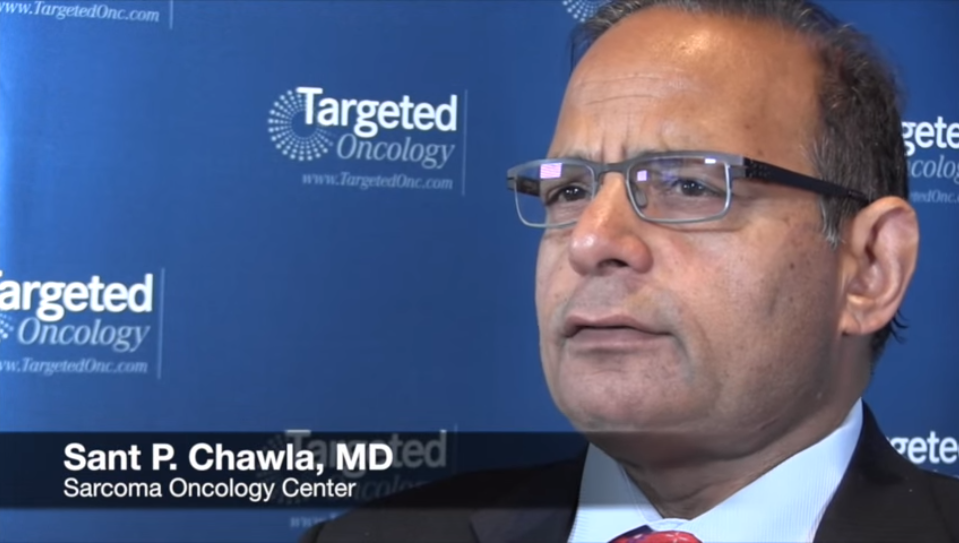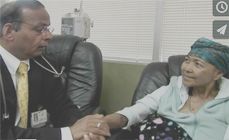Questions about Sarcoma
We would like to help you to understand your condition and manage your care by providing you with the following useful information. Use the resources on this page to help you organize your case and actively participate in your cancer care. This site will help you to track phone numbers, treatment history, side-effects, and laboratory results (such as your complete blood count, “CBC”), as well as help answer some of the most frequently asked questions. Keep this information handy to reference at home and take with you to your doctor visits and other medical appointments.
- How long will I have to stay in Los Angeles for my first visit?
- Who are my important contacts?
- What is My Health Condition and Treatment History?
- What is My Medical Care and Test Tracker?
- Should I keep track of my side effects?
- How do I manage my insurance ?
- What questions should I ask my doctors?
- Treating cancer with chemotherapy
- How does chemotherapy work ?
- Discussing the effectiveness of cancer treatment
- Importance of full dose on schedule
- Are there side-effects from chemotherapy?

How long will I have to stay in Los Angeles for my first visit ?
To allow sufficient time to reach the best possible recommendation for your care, you should come prepared to stay for at least one week. This gives the physicians enough time for a complete review of all your medical reports and information, including the information that you bring with you, and any additional tests that may be ordered during your stay. The treatment option you choose also affects how long you will be here. For example, sarcomas are treated with higher doses of chemotherapy than other solid tumors which requires close medical oversight. So your physician can closely monitor your care, it may be necessary for you to stay in the Los Angeles area for one to two months.
 Who are my important contacts ?
Who are my important contacts ?
You can store contact information on your doctors, caregivers, nutritionists, and other members of your health care team as well as your personal support group during chemotherapy in “My Important Contacts.”
What Information is Important to Have On Hand About My Health Condition and Treatment History?
Keep accurate records of your medications as well as your chemotherapy regimen in one document so that you can get the most from your chemotherapy. You and your health care team will be working together to determine the best medication, dose, and schedule for your specific condition. You might be taking multiple medications, and when combined with one or more other drugs, you might experience additional side-effects beyond those intended. The treatment history form will help you to keep track of all medications and manage your physical health during chemotherapy.
What is “My Medical Care and Test Tracker” ?
Keep track of medical appointments and test dates and times using this form: “My Medical Care and Test Tracker.”
Should I keep track of my side effects?
It is very important to document your side effects, including the date, time and frequency, and severity (mild or strong). You should also monitor your blood count changes to ensure treatment remains on schedule.
How do I manage my insurance ?
Medical insurance and bill management can be frustrating for you and your caregivers. Most hospitals and clinics provide a patient services representative to assist you with such issues.
What questions should I ask my doctors?
Your health care team is your best source of information. To ensure that you are getting the answers about your disease, treatment, possible risks, and optimum protection, you will want to find out as much as possible by reading, learning, and asking. When you have a question, use this form, My Questions to Ask, to write down your questions and reference it for the next conversation with your doctor.
 Treating cancer with chemotherapy
Treating cancer with chemotherapy
Chemotherapy is the general term for any treatment involving the use of chemical agents to stop the growth of cancer cells. Medically, chemotherapy is considered a systemic treatment because it eliminates cancer cells at sites great distances from the original cancer. More than half of all people diagnosed with cancer receive chemotherapy. For millions of people, chemotherapy helps them by treating their cancer effectively and enabling them to enjoy full, productive lives. Chemotherapy may be the best option for a successful outcome, but many people fear chemotherapy because they are concerned about uncomfortable side effects. Side-effect management has come a long way over the last few decades with many side-effects now prevented or controlled. With some types of chemotherapy, only minimal side effects are experienced. Understanding how side effects can impact your treatment is part of a successful outcome. A chemotherapy regimen (a treatment plan and schedule) usually includes drugs to fight cancer and drugs to support completion of the cancer treatment. Most doctors agree that the best opportunity for a successful result depends on a systematic chemotherapy schedule and prescribed dose. To get the most from chemotherapy, it’s important to stick to the prescribed schedule of treatment and dose.
How does chemotherapy work ?
Chemotherapy is designed to kill cancer cells. Depending on which drug is used, chemotherapy can be administered through a vein, injected into a body cavity, or delivered orally in the form of a pill. Chemotherapy works by destroying cancer cells but, unfortunately, it cannot tell the difference between a cancer cell and healthy cells. So, chemotherapy eliminates not only the fast-growing cancer cells but also other fast-growing cells in your body including hair and blood cells. Some cancer cells grow slowly while others grow rapidly. Therefore, each chemotherapy drug is designed to target the growth patterns of a specific type of cancer cell. As a result, each drug works differently and is effective at specific times in a cancer cell’s life cycle. Your doctor determines the chemotherapy drug that is right for you.
Discussing the effectiveness of cancer treatment
You are encouraged to understand the goals and risks of each treatment option so that in working with your doctor, you decide as a team on the best treatment for you. Working together helps you to consider potential benefits against treatment risks and balance them during your treatment. Once you and your doctor have decided on a treatment plan, talk with your doctor about everything that you can do to ensure you receive the full dose of your cancer treatment as scheduled. You can make note of subjects to discuss and questions to ask your doctor with the by using “My Questions to Ask” form.
Importance of full dose on schedule
Studies show that for certain types of cancer, chemotherapy produces the best long-term results when patients receive the full dose on time every time. Your doctor will develop a treatment plan scientifically designed for you and based on your type of cancer, its stage of advancement, and your overall health. The plan will consist of specific chemotherapy agents at specific doses and intervals. This is called your “scheduled cycles.” Generally, treatments are given daily, weekly, or monthly, and your doctor will work with you to determine the most effective treatment schedule. To get the most from chemotherapy, it’s important to stick to a schedule of treatment and dose that you and your doctor initially set up.
Are there side-effects from chemotherapy?
Significant advances have been made in chemotherapy with side-effects less of an issue now than years ago. Chemotherapy combines art and science with the right combination of treatments acting as the patient’s partner in defeating cancer. Chemotherapy can now effectively eliminate and prevent recurrence of the disease while maintaining a patient’s quality of life.
Dr. Chawla has pioneered in the development of new proactive chemical therapy and either diminished or eliminated side effects altogether. Additionally, these new treatments can protect the heart and kidney, substantially reduced infections and limit the need for blood transfusions. In most cases, patients no longer experience nausea or vomiting from chemical therapy. Dr. Chawla reports that over 50% of his patients continue to work while being treated, maintain their daily routine and exercise programs and experience uninterrupted treatment schedules. You can take an active role in managing side-effects. Learn all you can, use your resources from this page to organize your cancer information and note any side-effects you experience and discuss them with your doctor.
Contact the Sarcoma Oncology Specialists Today
Sarcoma Oncology Center offers patients the best possible solution and considers the physical and emotional well being of each patient. Please contact our center at 310-552-9999 to schedule a consultation with one of our oncologists to discuss your personal situation and answer your questions. Learn more about the Sarcoma Oncology Center physicians.
Next, read our Glossary of Terms.





